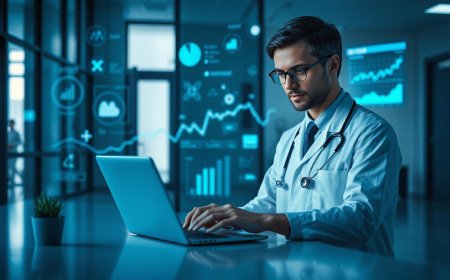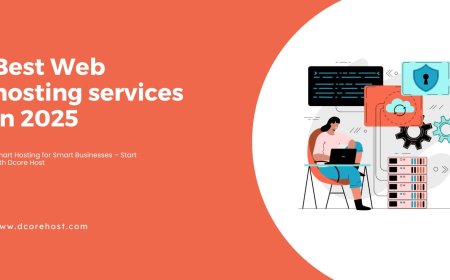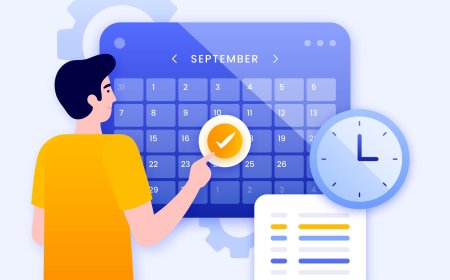The Future of Cybersecurity: How AI Is Fighting AI-Powered Threats
As someone who's always keen on new technologies, I've found it fascinating to witness how artificial intelligence (AI) is transforming every industryespecially cybersecurity. AI is already revolutionizing how we protect our data, and the importance of this technology continues to grow. As the world becomes more connected, the threats we face become increasingly sophisticated, making traditional methods of protection less effective. So, how do we fight back? Well, the answer is clear: we need AI to fight AI-powered threats. Lets break down how this works and why its so crucial for the future of cybersecurity.
The Growing Threat of AI-Powered Cyberattacks
Over the past few years, weve seen an explosion of cyber threats, from data breaches to ransomware attacks. With each new attack, it becomes clearer that traditional cybersecurity measures simply arent enough. Hackers are using increasingly complex methods, often leveraging AI and machine learning to bypass conventional security systems.
As I think about how AI has improved various industrieswhether its in the electric vape market with smarter technology or gaming with enhanced visualsits no surprise that hackers are using similar technologies to exploit vulnerabilities. AI-powered cyberattacks are becoming more targeted, faster, and harder to detect, which means we need smarter solutions to defend against them.
In the past, we might have relied on simple firewalls and antivirus software to keep hackers at bay. However, these traditional tools are now easily circumvented by automated tools and bots. Hackers can use AI to launch attacks that learn from their environment, adapt in real-time, and adjust their tactics as needed. This kind of advanced threat requires an equally sophisticated solution.
How AI is Defending Against AI-Powered Threats
So, how do we fight fire with fire? The key is using AI itself. Just as hackers are using AI to find vulnerabilities, cybersecurity professionals are using AI to detect, prevent, and mitigate these attacks before they can cause harm.
AI systems are particularly effective at identifying patterns. By analyzing massive amounts of data, AI can detect abnormal behavior that might signify an attempted breach. For example, if an AI detects an unusual number of login attempts or irregular traffic patterns on a website, it can trigger an alert or block the suspicious activity before it escalates into a full-blown attack. This speed and precision are critical in todays fast-paced world of cyber threats.
Heres how AI is fighting back against AI-powered threats:
-
Real-time Threat Detection: AI-powered systems are constantly monitoring networks, looking for signs of unusual activity. By analyzing vast amounts of data from various sources, AI can quickly identify threats that might otherwise go unnoticed by human analysts.
-
Automated Response: Once a threat is detected, AI can take immediate action, blocking access, isolating the affected systems, or even reversing the attack. This immediate response is critical in preventing further damage.
-
Behavioral Analysis: AI systems can monitor normal user behavior and identify any deviations. If a users account suddenly behaves abnormallylike attempting to access restricted data or sending large volumes of emailsAI can flag this as potentially malicious and take action accordingly.
-
Predictive Analysis: AI can learn from previous cyberattacks and predict where future threats are likely to come from. This proactive approach helps cybersecurity teams stay ahead of hackers and protect critical systems before theyre even targeted.
For someone whos always keeping an eye on the latest trendswhether its best vape mods or the latest in techAIs role in cybersecurity is one of the most exciting advancements. Its not just about defense anymore; AI allows for predictive, intelligent responses that outpace even the smartest hackers.
The Role of AI in Evolving Cybersecurity Threats
One of the unique aspects of AI-driven threats is that they can evolve. Hackers no longer need to manually create malware or rely on human intervention to exploit weaknesses in systems. Instead, they can deploy AI tools that learn from their environment and adapt to new security measures.
This is where AIs ability to evolve and learn on its own becomes crucial in fighting back. AI can be used not just to react to threats, but to predict and outsmart them before they happen. This gives companies and organizations a real edge in the ongoing battle against cybercriminals.
Imagine the security features in a vape store that uses AI-powered systems to protect customer data, ensuring that credit card details and personal information remain safe. Just as AI can protect online transactions in industries like e-commerce, it can also safeguard sensitive data in any other sector, from banking to healthcare.
AI-powered tools are continuously learning how hackers work and adapting accordingly. As the nature of cyberattacks evolves, AI is the perfect tool to stay one step ahead. This dynamic ability to respond and adapt is why AI is seen as the future of cybersecurity.
The Future of AI in Cybersecurity: Whats Next?
Looking ahead, the role of AI in cybersecurity is only going to grow. As cyberattacks become more sophisticated and widespread, its clear that human intervention alone wont be enough to stop them. AI offers a scalable, efficient, and effective solution that can grow alongside these threats.
Heres what the future of AI in cybersecurity might look like:
-
Advanced AI Algorithms: As AI technology continues to evolve, well see even more advanced algorithms capable of predicting and neutralizing threats with incredible accuracy. These algorithms will continue to learn from past incidents, making them more capable of detecting novel threats.
-
AI-Powered Security Networks: We might soon see entire security ecosystems powered by AI, where different systems work together in real-time to defend against evolving threats. This kind of networked security could make it harder for attackers to target specific vulnerabilities.
-
AI and Ethical Hacking: Ethical hackersthose who use their skills to improve cybersecurityare also adopting AI. Theyll use AI to test systems for weaknesses and vulnerabilities, further strengthening the overall defense.
-
Collaborative Cybersecurity: As companies work together to tackle cybersecurity threats, AI will facilitate this collaboration. By sharing threat data and using AI to analyze it, organizations can pool their resources and stay ahead of hackers.
For someone like me, who keeps an eye on cutting-edge trends, the continued development of AI in cybersecurity is exciting. Its like seeing a new wave of technology that holds the potential to revolutionize industries, just as the best vape mods have done for vaping enthusiasts by improving performance and satisfaction.
Conclusion: Embracing AI in Cybersecurity
As we move forward, its clear that the future of cybersecurity relies heavily on AI. Just as AI helps improve the quality and performance of products like electric vape devices, it can also be used to improve security, protect sensitive data, and stay one step ahead of increasingly sophisticated cyberattacks.
With AI at the helm, we can anticipate a safer, more secure digital world, where technology not only defends us but also evolves with the threats we face. Whether youre into technology, vaping, or simply concerned about online safety, its hard to ignore the massive impact AI will continue to have on cybersecurity.
In the end, AI is not just a tool for fighting back against AI-powered threatsits the key to our digital future. Embracing this technology is essential for creating a safer online environment and staying ahead of those who seek to exploit it.
Know More About - The Digital Shift: Exploring Emerging Technologies in 2025


































































